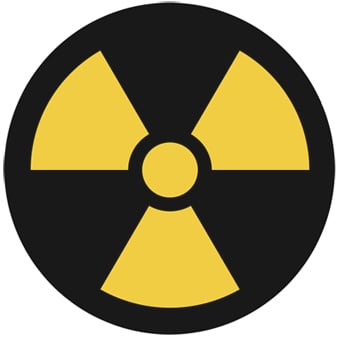Nuke Cuts Tempt Fate
The administration's plan to cut the nuclear stockpile invites disaster.
 Leaks have revealed that the Pentagon is considering reducing its nuclear arsenal by as much as 80 percent and potentially to as few as three hundred warheads. This revelation raises a critical question: Is the United States tempting fate with such drastic cuts? Since President Obama has made nuclear disarmament a cornerstone of his foreign policy, the answer for this administration is clearly “No.” Unfortunately, nuclear weapons will continue to serve critical foreign- and defense-policy objectives. Such deep cuts create unacceptable risks, especially when proposals are not accompanied by clear plans to modernize the aging nuclear enterprise. This administration’s approach is not cut and replace; it’s just cut—and that’s not good strategy.
Leaks have revealed that the Pentagon is considering reducing its nuclear arsenal by as much as 80 percent and potentially to as few as three hundred warheads. This revelation raises a critical question: Is the United States tempting fate with such drastic cuts? Since President Obama has made nuclear disarmament a cornerstone of his foreign policy, the answer for this administration is clearly “No.” Unfortunately, nuclear weapons will continue to serve critical foreign- and defense-policy objectives. Such deep cuts create unacceptable risks, especially when proposals are not accompanied by clear plans to modernize the aging nuclear enterprise. This administration’s approach is not cut and replace; it’s just cut—and that’s not good strategy.
For the United States, nuclear weapons matter for purposes of deterrence and coercion, two of the major tools in Washington’s toolbox to advance and protect its interests. To serve these important and complicated ends, the United States must not cut its nuclear arsenal.
For deterrence purposes, nuclear weapons matter for several reasons:
First, they help to keep relative peace among nation states and prevent crises from escalating, as the world witnessed with the Cuban Missile Crisis.
Second, they deter direct attacks on the U.S. homeland by other nations.
Third, nuclear weapons—both strategic and tactical—allow the United States to extend deterrence credibly, effectively and cheaply to its allies like Germany, Japan and Saudi Arabia. This provides them with security and removes their incentive to acquire nuclear weapons.
Fourth, we have nuclear weapons to deter attacks against the United States military.
Fifth, nuclear weapons play a role in deterring escalation of conflict. For example, were China to attack Taiwan, U.S. nuclear weapons would deter escalation to a strategic exchange between the United States and China.
Finally, nuclear weapons deter the use of other weapons of mass destruction, such as biological or chemical weapons, against the U.S homeland, allies or U.S. military.
Nuclear weapons also aid Uncle Sam’s ability to coerce opponents. In a crisis, nuclear weapons help convince a challenger not to escalate to a higher level of violence, or “move up a rung” in the “escalation ladder.” Though laden with risks, they also provide the possibility of attacking first to limit the damage the United States or its allies would incur. Whether the United States would do so is another matter. But possessing the capability provides it with coercive capabilities in crisis situations or war.
Slashing the current nuclear stockpile without an actionable plan to replace aging systems with newer systems will reduce the credibility of the stockpile, thus weakening the deterrent and coercive ability of Washington. The real problem is not just the magnitude of the cuts but the lack of a plan for maintaining an effective deterrence posture. All of the nuclear warheads and delivery systems in the U.S. stockpile entered service last century, and some legs of the system, including the B-52H long-range bomber, entered service in 1961.
Regrettably, the cold facts are the clock cannot be turned back; nuclear weapons cannot be un-invented; and they remain key tools to advance the interests of the United States and international stability. The global deterrent and assuasive commitments of the United States do not permit additional cuts. They cannot be eliminated or dramatically reduced without a cost and penalty for U.S. national interests.
The Cold War changed much, but it did not change the need to be able to deter and coerce foes, a need as identifiable to the ancient Greeks as it is to us today. No state—certainly not China, Russia, India, Pakistan, Israel, North Korea, France or the United Kingdom—has given up key nuclear tools. No superpower has contemplated such drastic “muscle loss,” reductions in essential weapons it and its allies need now and in the future—and the United States should not be first.
Bradley A. Thayer has served as a consultant to the Department of Defense and is a professor of political science at Baylor University. Thomas M. Skypek is a former Washington fellow at the National Review Institute, a former nuclear scholar at the Center for Strategic and International Studies and a national-security consultant in Washington, DC. The views expressed herein are those of the authors.
